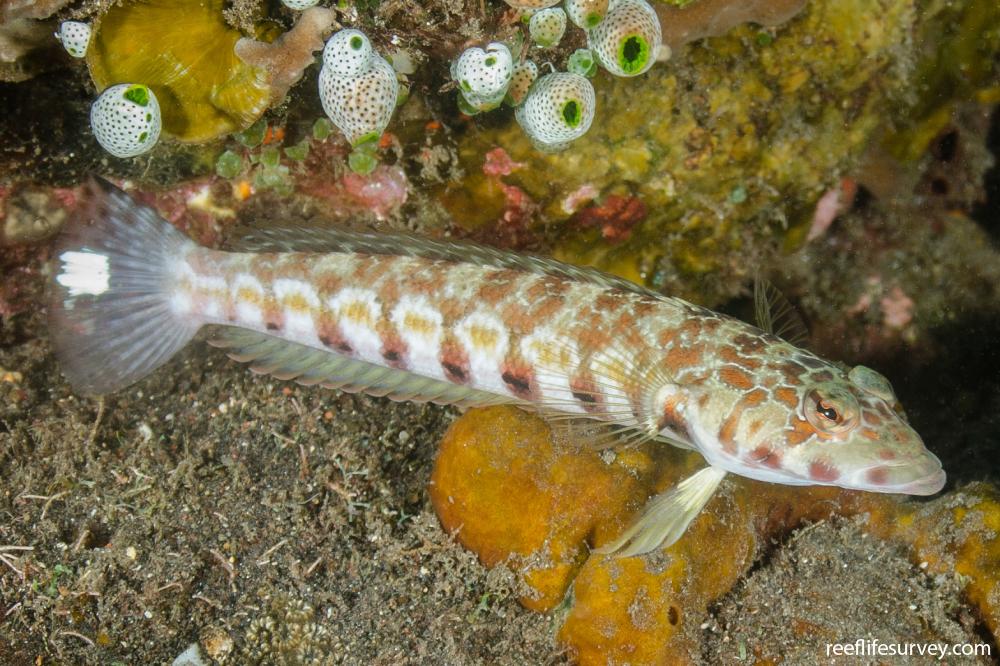Parapercis millepunctata
Thousand spot grubfish | Black Dotted Sand Perch | Manyspotted Sandperch | Spotted SandperchSimilar Species
Same Genus
Distribution
Tropical Indo-Pacific
Description
Row of black spots along body often surrounded by diffuse red-brown patches and connected by a thin stripe. White patch at base of ventral fins, white patch at rear edge of tail fin often preceded by a large black patch, roughly U-shaped blotched markings on back connected to black spots on lower body by indistinct bars with yellow blotches between. Head spotted and often fine spotting on cheek. Very similar to P. clathrata (Spothead Grubfish), with pale females of the latter only reliably distinguished by small, inconspicuous spotting along the base of the rear part of the anal fin, males lacking spotting but with ringed black spot.
Information
Max Size: 18 cm
Sea Temperature Range: 23-30.8°C
Depth: 3-50m
Habitat Generalization Index: 10.65
Also referred to as the SGI (Species Generalisation Index), this describes the habitat niche breadth of the species. Species with values less than 15 are found in a relatively narrow range of reef habitat types (specialists), while those over 25 may be found on most hard substrates within their range (generalists). Learn more here.
Conservation and Rarity
IUCN Status: Not Evaluated
Occurrence: Infrequent (6.7% of sites)
Occurrence describes how often the species is found on surveys within its distribution. It is calculated as the % of reef sites surveyed by RLS divers across all the ecoregions in which the species has been observed
Abundance: Few (2 per transect)
Abundance is calculated as the average number of individuals recorded per RLS transect, where present.
Edit by: Joe Shields


































